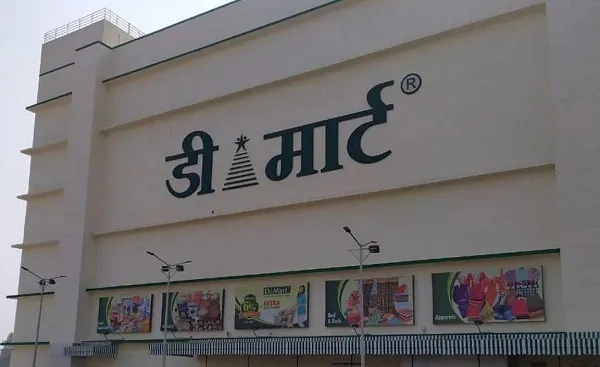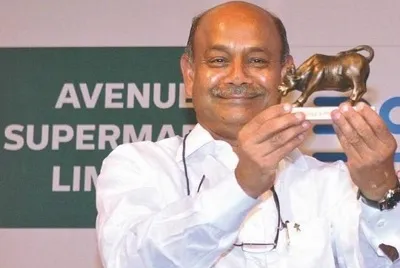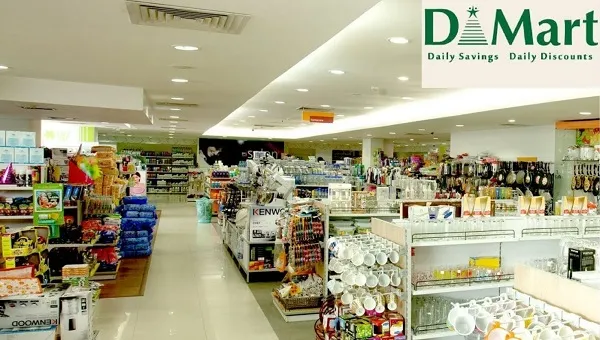
Dmart is an Indian supermarket chain owned and operated by a retail corporation. Avenue Supermarts Limited (ASL), the company's parent, is promoting it. Radhakishan Damani is an investor and businessman headquartered in Mumbai. The self-made tycoon owns the 'DMart' retail empire, the third-largest in the country. Only after defeating the notorious Indian stockbroker Harshad Mehta did Radhakishan establish himself in the industry. Radhakishan became one of the most successful investors in the country's stock market by putting a large portion of his wealth into global corporations in the late 1980s and early 1990s. Now he has investments in businesses as diverse as the tobacco manufacturer VST Industries, the brewery United Breweries, and the logistics firm Blue Dart Express Ltd. According to Indian investor and trader Rakesh Jhunjhunwala, also known as the "Warren Buffet of India," Radhakishan is a major influence in his life. Radhakishan left the stock market business to start "DMart."
In 1999, Radhakishan and Damodar Mall, CEO of 'Reliance Retail,' purchased a franchise from 'Apna Bazaar,' a co-operative organization founded in Mumbai in 1948. He first invested in a 5000 square foot franchise of the retail company Apna Bazar, and then he bought another 5000 square foot franchise. This gave him insight into the retail industry and the consumer sector, he used this knowledge to launch Dmart a few years later to serve

the expanding demands of India's middle class. In 2002, they opened a shop in Powai. D-Mart was released by Radhakishan two years later. Next, he seized control of the shopping channel 'Apna Bazaar.' In 2002, he opened the first 'DMart' store in a Mumbai suburb. He currently operates around 160 outlets across the US.
Damani was already a household figure in India's financial markets by the time he established DMart on the Bombay Stock Exchange. In addition, he purchased other value stocks, such as Gillette and HDFC Bank, anticipating a rise to exorbitant valuations for the new business. However, in 2002, following a fruitful career in the stock market as an investor for consumer-facing companies, Radhakishan Damani struck out on his own and established the DMart retail chain. In addition, he applied tactics that were novel in India's retail sector. After that, most retailers in the industry opted to lease rather than buy their stores, but DMart had done its homework and already owned locations all over India. DMart was initially listed in an IPO under its parent company's name, Avenue Supermarkets. The debut on the 'National Stock Exchange' was a smashing success.
While other market participants adapted to the changing retail landscape by expanding into categories like electronics and clothing, Dmart stuck to what it does best: selling food and groceries. In addition, while competing supermarkets are releasing their own private brands to boost sales and profit margins, DMart continues to rely only on products from unaffiliated third parties. Dmart aspires to be a low-price leader in its industry by concentrating on client growth rather than cutting prices. The company operates as a business-to-consumer merchant, which means it buys in bulk to take advantage of deep trade discounts and then resells to consumers at rock-bottom prices. It is able to maintain a steady customer base since it sells necessities. Since DMart's target demographic is comprised of middle-income earners, the company employs discount promotions as a unique tool for enticing customers and growing business. DMart aims to provide for the needs of the average shopper while giving them a return on their investment.
Dmart pays its vendors on the eleventh day itself, but the industry standard for the FMCG market is 12-21 days in installments. DMart is an excellent place to work because of the competitive pay, benefits, and relaxed yet productive atmosphere. In India, DMart is regarded as the Walmart. Home and personal care items, groceries and staples, daily essentials, home appliances, footwear, luggage, fruits and vegetables, men's and women's clothing, and many other categories are all available at DMart. Since these items are necessary in our daily lives, their popularity remains high all year round. And by doing so, they help the brand achieve the kind of stability that so many others can only dream of by eliminating the possibility of volatility owing to increased demand. The middle class is Dmart's ultimate goal market because this demographic has shown a preference for the discount offers that the retailer frequently uses to expand its customer base and boost its revenue. Additionally, all customers, all vendors, and all of Dmart's employees are essential to the company's success.

The moniker "Supermarket" has been largely co-opted by DMart, which also manufactures and produces some of the products sold under its own label. DMart offers pricing that are significantly lower than the competition. The company is proud of the fact that it can serve customers in both urban and rural locations with the same low costs. Dmart's grocery chain is one of the most profitable in the country, and this is mostly due to the company's pricing strategy. In contrast to many of its rivals, DMart does not put a premium on overtly promotional activities. Instead, it has stuck to its USP all these years: selling items at prices lower than their MRP. To keep prices low and pass the savings on to customers, DMart buys products directly from manufacturers and suppliers. Private label products are branded goods that are created and sold solely by DMart, and hence account for the majority of the company's revenue. Customers may expect high quality and good value from these items.
The company's pricing approach centers on luring clients who are looking to save money without sacrificing quality. As a result, DMart is able to keep prices low and pass the savings on to its customers by purchasing products directly from manufacturers and suppliers. Reduced lead times and cheaper inventory costs are two further benefits of the company's efficient supply chain, which makes use of a centralized warehouse system and efficient transportation methods. Despite offering sales and inexpensive prices, DMart has never closed a shop and has no plans to do so until 2020. In order to compete with Reliance in the e-commerce market, the company shut down two of its storefronts in Mumbai that year and converted them into online fulfilment centers. To put it simply, DMart is not a fan of pushy advertising. The company's unique selling proposition (USP) is that its prices are always lower than the MRP. The success of the business depends on this factor more than any other. DMart uses aggressive CSR and other low-cost marketing strategies to promote their products and services.